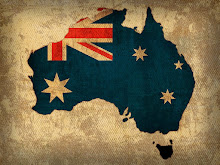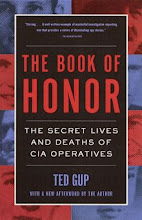Huddie Lead Belly Ledbetter was born in 1888 or 1889 on a plantation near Mooringsport, Louisiana, but the family moved to Leigh, Texas, when he was five. By 1903, Lead Belly was already a singer and guitarist of some note. He performed for nearby Shreveport, Louisiana audiences. Lead Belly began to develop his own style of music after exposure to a variety of musical influences of the saloons, brothels, and dance halls in the notorious St. Paul's Bottoms red-light district.
Prison years
Lead Belly's volatile temper sometimes led him into trouble with the law. In 1915 he was convicted "of carrying a pistol" and sentenced to do time on the Harrison County chain gang, from which he escaped. In January 1918 he was imprisoned a second time, this time after killing one of his relatives, Will Stafford, in a fight over a woman. In 1918 he was incarcerated in Sugar Land, Texas, where he probably learned the song "Midnight Special". In 1925 he was pardoned and released after writing a song appealing to Governor Pat Morris Neff for his freedom, appealing to his strong religious beliefs.
In 1930, Lead Belly was back in prison for attempted homicide after he knifed a white man in a fight. It was there, three years later, that he was "discovered" by musicologists John Lomax and son Alan Lomax during a visit to the Angola Prison Farm. They recorded hundreds of his songs on portable aluminum disc recording equipment for the Library of Congress.
Lead Belly was released again on August 1, 1934, after the Lomaxes took a petition to Louisiana Governor Oscar K. Allen at Lead Belly's urgent request. The petition was on the other side of a recording of his signature song, "Goodnight Irene."
Moniker
There are several, somewhat conflicting stories about Lead Belly's famous nickname. Some say his fellow inmates dubbed him "Lead Belly" as a play on his last name and reference to his physical toughness; others say he earned the name after being shot in the stomach with shotgun buckshot. Another theory has it that the name refers to his ability to drink homemade liquor (moonshine).
Whatever its origin, he adopted the nickname as a pseudonym while performing, and it stuck. Regarding his toughness, it is also recounted that during his second prison term, another inmate stabbed him in the neck (leaving him with a fearsome scar that he subsequently covered with a bandanna), and he took the knife away and in turn almost killed his attacker with it.

Fame, but not Fortune
By the time Lead Belly was released from prison, the United States was deep in the Great Depression and jobs were very scarce. In September 1934, Lead Belly met with John A. Lomax and for three months he assisted the 67-year-old John Lomax in his folk song collecting in the South.
In December, Lead Belly participated in a "smoker" (group sing) at an MLA meeting in Bryn Mawr College in Pennsylvania, where he was written up in the press as a convict who had sung his way out of prison. On New Year's Day, 1935, the pair arrived in New York City, where John Lomax was scheduled to meet with his publisher, Macmillan, about a new collection of folk songs. The newspapers were eager to write about the "singing convict" and Time magazine made one of its first filmed March of Time newsreels about him. Lead Belly attained fame (though not fortune).
Life magazine ran a three-page article titled, "Lead Belly - Bad Nigger Makes Good Minstrel," in the April 19, 1937 issue. It included a full-page, color (rare in those days) picture of him sitting on grain sacks playing his guitar and singing. Lead Belly continued to struggle financially. Like many performers, what income he made during his lifetime would come from touring, not from record sales.

In 1939, Lead Belly was back in jail for assault, after stabbing a man in a fight in Manhattan. Alan Lomax, then 24, took him under his wing and helped raise money for his legal expenses, dropping out of graduate school to do so.
After his release (in 1940-41), Lead Belly appeared as a regular on Alan Lomax and Nicholas Ray's groundbreaking CBS radio show Back Where I Come From, broadcast nationwide. He also appeared in night clubs with Josh White, becoming a fixture in New York City's surging folk music scene and befriending the likes of Sonny Terry, Brownie McGhee, Woody Guthrie, and a young Pete Seeger, all fellow performers on Back Where I Come From.
During the first half of the decade he recorded for RCA, the Library of Congress, and for Moe Asch (future founder of Folkways Records), and in 1944 headed to California, where he recorded strong sessions for Capitol Records. In 1949 Lead Belly had a regular radio broadcast on station WNYC in New York on Sunday nights on Henrietta Yurchenko's show. Later in the year he began his first European tour with a trip to France. Lead Belly was the first American country blues musician to see success in Europe.













































No comments:
Post a Comment